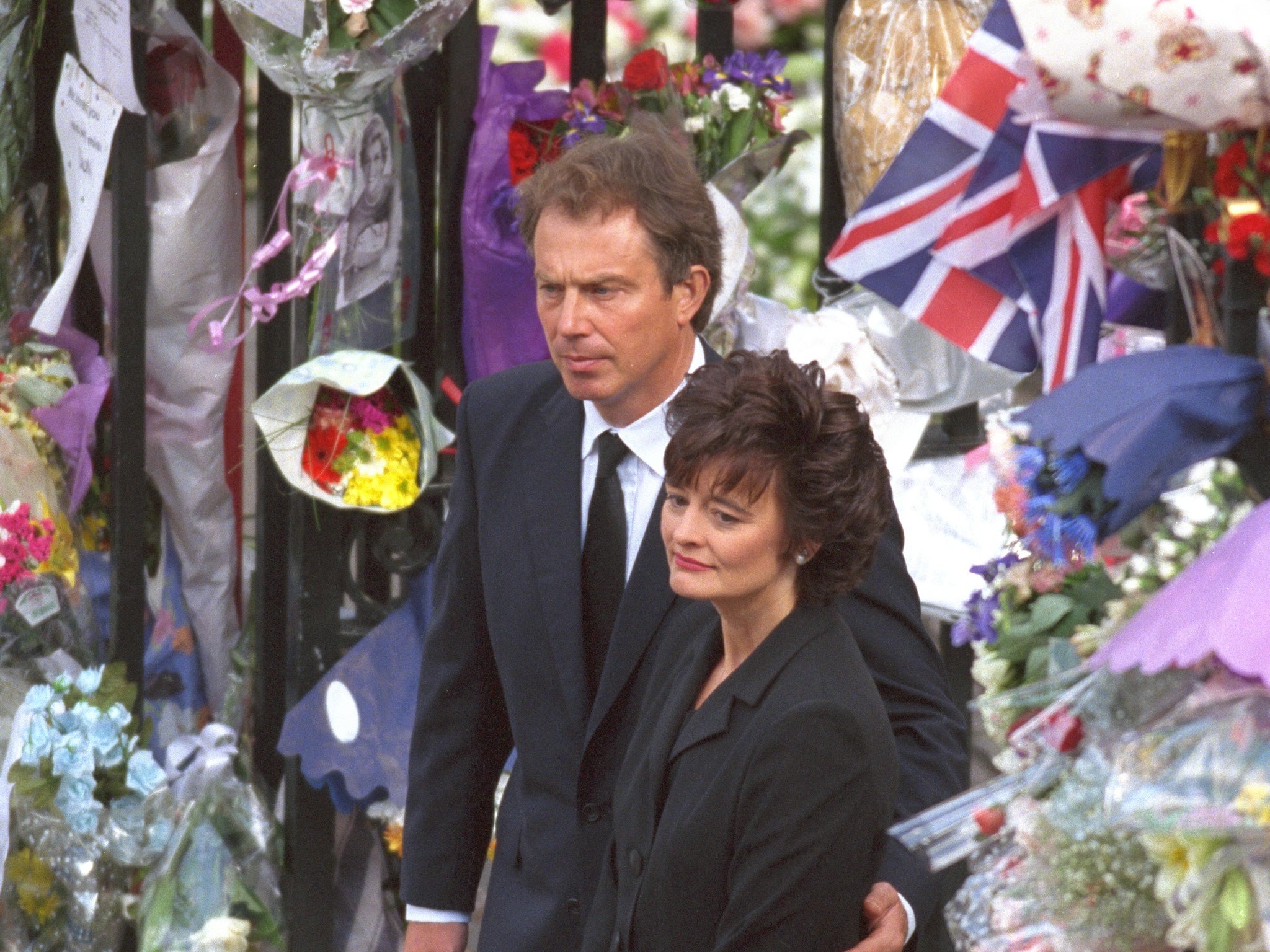Tony Blair didn’t save the Royal Family after Princess Diana’s death – they’re just as controlling and removed
The Royal Family’s popularity has been rebuilt, not by democratising, but by carefully reconstructing their superior position and restrained aura

Your support helps us to tell the story
From reproductive rights to climate change to Big Tech, The Independent is on the ground when the story is developing. Whether it's investigating the financials of Elon Musk's pro-Trump PAC or producing our latest documentary, 'The A Word', which shines a light on the American women fighting for reproductive rights, we know how important it is to parse out the facts from the messaging.
At such a critical moment in US history, we need reporters on the ground. Your donation allows us to keep sending journalists to speak to both sides of the story.
The Independent is trusted by Americans across the entire political spectrum. And unlike many other quality news outlets, we choose not to lock Americans out of our reporting and analysis with paywalls. We believe quality journalism should be available to everyone, paid for by those who can afford it.
Your support makes all the difference.“Walk hand in hand, as opposed to being so distant.” That was Princess Diana’s proposal for the type of relationship that the Windsors should have with the public, advice that she gave in a controversial 1995 interview with Martin Bashir. According to every commentary you’ll read or see this month, that is exactly what the Princess’s tragic death forced the Royal Family to do: be less distant.
That conventional narrative begins with the Windsors deciding to remain in Balmoral the week before Diana’s funeral. Only four months earlier, New Labour had come to power with their supposedly post-ideological and compassionate vision, and the Royal Family seemed out of touch with the egalitarian New Britain. Apparently, though, they were soon forced to remodel themselves in the Princess’s image.
This democratic fairy tale has become widely accepted, but it is a spin doctor’s fantasy.
The Royal Family’s popularity has been rebuilt, not by democratising, but by carefully reconstructing their superior position and restrained aura. In the 1980s and 1990s, accusations of adultery, leaks and wild revelations were the norm, but that ended the day of Diana’s funeral.
The Windsors’ press secretaries no longer had to compete with the Princess’s allies, and the media were shamed into submission by the alleged role of paparazzi in her death. Palace aides have since wielded extraordinary influence over what the public are told about the monarchy.
You get a sense of how dominant those courtiers have become when you notice the difference between two versions of the same story.
In the days after the Princess died, Blair was widely praised for saving the Royal Family from their own supposed obsession with protocol. But now that time is recalled differently. Reports last week reminded us that after the then Prime Minister and his team encouraged the palace to involve William and Harry more in the funeral, the Duke of Edinburgh told them angrily to “f**k off”. The Windsors apparently decided to follow Downing Street’s advice, but Philip comes out of the episode seeming refreshingly frank. Blair is no longer portrayed as the saviour, but as a cynic.
It’s not just the greater influence of palace press officers that has encouraged this royalist perspective. Counterintuitively, the Windsors have benefited from a decade of economic and political crisis. That’s partly because, in times of upheaval, some people feel reassured by tradition. But something else is going on.
The royals embody exactly the kind of straightforwardness that we have especially come to admire in this age of anger. Seven years after New Labour left office, and even after a decade of disruption for capitalism and democracy, the kinds of criticisms that we level at our politicians are still mostly “post-ideological”. The most dangerous sin for someone in the public eye to commit isn’t having the wrong values; it’s appearing not to stick to them. The arrival of the 24-hour news-cycle, camera phones and social media has made such hypocrisy harder to conceal, and thus more hazardous.
Whether it’s the Duke of Edinburgh or Jeremy Corbyn, those who project authentic consistency are best placed to survive. That’s easier while you’re in opposition, or an unelected royal, but it makes being in office riskier: those in power have to bargain and make sacrifices. We can tell that the Labour leadership is confident they will eventually move into Downing Street because they have already made potentially unpopular policy concessions – while maintaining their core agenda – even though they don’t yet have to. Indicating that they won’t immediately roll back 75 per cent of the Tories’ welfare cuts is a key example.
The Windsors, by contrast, seem upstanding because their PR regime shields them from the Insta-surveillance that a party leader must endure. But the royals compromise too, in their own way. Like ordinary celebrities, they can only retain their privileged social position and luxurious lifestyle if they allow the press and the public periodic access to their lives, their feelings and even their children.
Any rogue duke or princess who goes too far, and adopts a Kardashian-style social media strategy, will find their flaws exposed immediately and, soon enough, their reputation trashed. But when the Windsors suffer their next popularity crisis, they may feel forced to pursue a similar course and risk such a fate.
Then the relationship between monarchy and its subjects really will be levelled, but not in an edifyingly democratic way. The Windsors will survive only if they remain, like Corbyn, willing to compromise, but not too much.
Richard Power Sayeed is the author of a new history of Britain in 1997, ‘The Future that Never Happened’, published by Zed Books.
Join our commenting forum
Join thought-provoking conversations, follow other Independent readers and see their replies
Comments